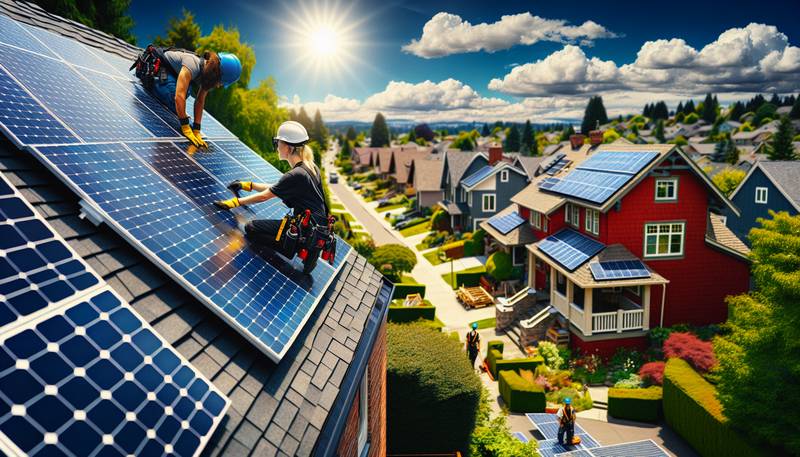What You Should Know Before You Install Solar Panels

Bright Ideas and Solar PanelsInstalling solar panels isn’t just a trend; it’s more like a long-term commitment, similar to adopting a houseplant. While houseplants require occasional watering and love, solar panels demand sunlight and, let’s be honest, some of your hard-earned cash. They’re like the overachievers of household upgrades—always aiming to guilt-trip you into using less energy. But before you dive headfirst into this solar extravaganza, here’s what you should know, sprinkled with a dash of humor.How Solar Panels Actually WorkSolar panels convert sunlight into electricity using the magical science of photovoltaic cells. It’s as if the sun decided to throw a party and the solar panels are the guests who never leave. When sunlight hits these cells, they generate direct current (DC) electricity—yes, the same stuff that powers your alarm clock to wake you up at the most inconvenient times. The electricity is then converted into alternating current (AC) through an inverter, which is palatable enough to be used in your home. Think of it as the solar panels hosting a cocktail party, where they mix and serve drinks that power your entire home!Do You Have Enough Sunshine?Before installing your solar panels, check if you live in a sun-kissed area. This isn’t just about your vacation plans—knowing the sunlight exposure at your location is crucial. If your home is under the shade of a giant oak tree or next to a skyscraper that casts shadows longer than an overenthusiastic loom, you might want to rethink your solar dreams. Ideally, panels work best with at least 4-5 hours of direct sunlight per day. If your home resembles a cave more than a sunlit meadow, you might be better off investing in a good set of glow-in-the-dark stickers.Cost Considerations That Won’t Break the Bank... or Will They?The price tag for solar panels can be reminiscent of a shopping spree gone wrong. While they may promise to cut down your energy bills faster than you can say “eco-friendly,” the initial costs can make you break out in a cold sweat. On average, you might be shelling out anywhere from $15,000 to $25,000, depending on your energy needs and the size of your roof. Don’t forget about installation costs, maintenance, and possible financing options that sound more complicated than a family board game.Before pulling out your wallet, remember that solar incentives exist, ranging from tax credits to rebates. It’s like a scavenger hunt for cash… only instead of treasure, you uncover savings that make your heart sing. And while you're at it, consult your local utility company—some offer programs even more generous than your grandmother’s cookie jar.The Nitty-Gritty: Things to Check Before InstallationBefore you take the plunge, consider these crucial aspects: - Roof Condition: Is your roof ready for a solar panel party? If it’s older than your favorite pair of jeans, it may need repairs first.
- Local Regulations: Check the rules in your area. Some homeowners' associations can be more protective than a mother hen.
- Space Available: Do you have enough roof space? It’s not exactly a game of musical chairs—more like a game of solar chess.
- Energy Needs: Consider your electricity consumption. Are you a light on energy use or lighting up every room like it's the Fourth of July?
Long-Term Payoff: Are You Ready for the Commitment?While solar panels can potentially save you a fortune on energy bills, your journey doesn’t end once they’re installed. It’s a long-term relationship that requires care, maintenance, and the occasional troubleshooting. Regular cleaning and inspections are essential to keep those panels operating at peak performance. It’s like taking your solar panels out for a nice dinner—not every day, but at least once a year.Sunny Side Up: The Bottom LineInvesting in solar panels is no small feat; it’s more akin to adopting a golden retriever—life-changing and sometimes a little hairy. But the benefits can outweigh the concerns, providing you with cleaner energy and reduced bills over time. Just be sure to do your research, consult with experts, and remember—solar panels don’t literally bring sunshine into your life, but they can help brighten up your energy budget.
|
|







